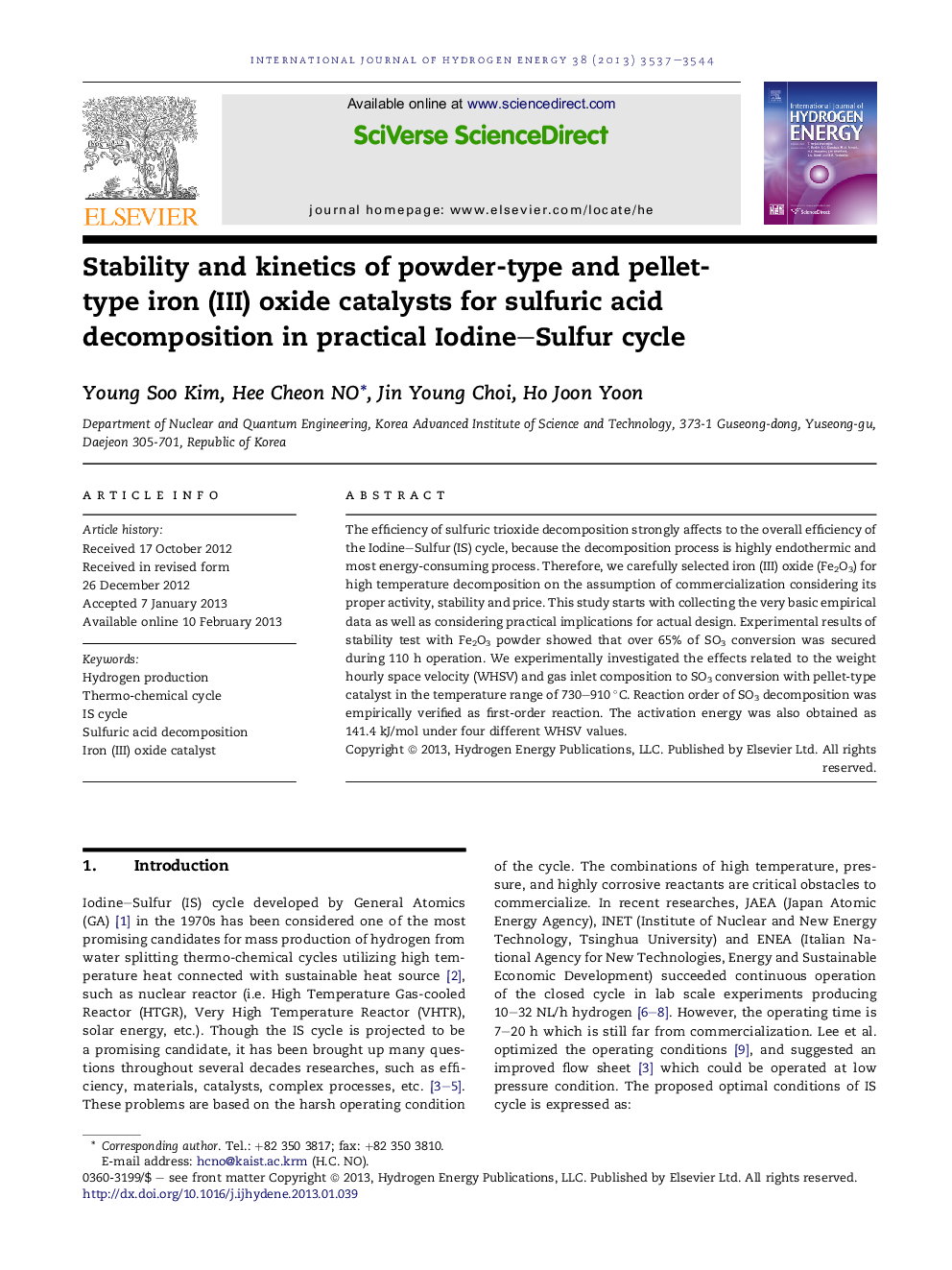| Article ID | Journal | Published Year | Pages | File Type |
|---|---|---|---|---|
| 1275569 | International Journal of Hydrogen Energy | 2013 | 8 Pages |
The efficiency of sulfuric trioxide decomposition strongly affects to the overall efficiency of the Iodine–Sulfur (IS) cycle, because the decomposition process is highly endothermic and most energy-consuming process. Therefore, we carefully selected iron (III) oxide (Fe2O3) for high temperature decomposition on the assumption of commercialization considering its proper activity, stability and price. This study starts with collecting the very basic empirical data as well as considering practical implications for actual design. Experimental results of stability test with Fe2O3 powder showed that over 65% of SO3 conversion was secured during 110 h operation. We experimentally investigated the effects related to the weight hourly space velocity (WHSV) and gas inlet composition to SO3 conversion with pellet-type catalyst in the temperature range of 730–910 °C. Reaction order of SO3 decomposition was empirically verified as first-order reaction. The activation energy was also obtained as 141.4 kJ/mol under four different WHSV values.
► Stability of powder-type of Fe2O3 catalyst was tested for 110 h at 850 °C. ► Results show the effects of WHSV and gas inlet composition on pellet-type catalyst. ► The order of reaction of sulfur trioxide decomposition is verified empirically. ► Overall activation energy under four different WHSV conditions is 141.4 kJ/mol.
